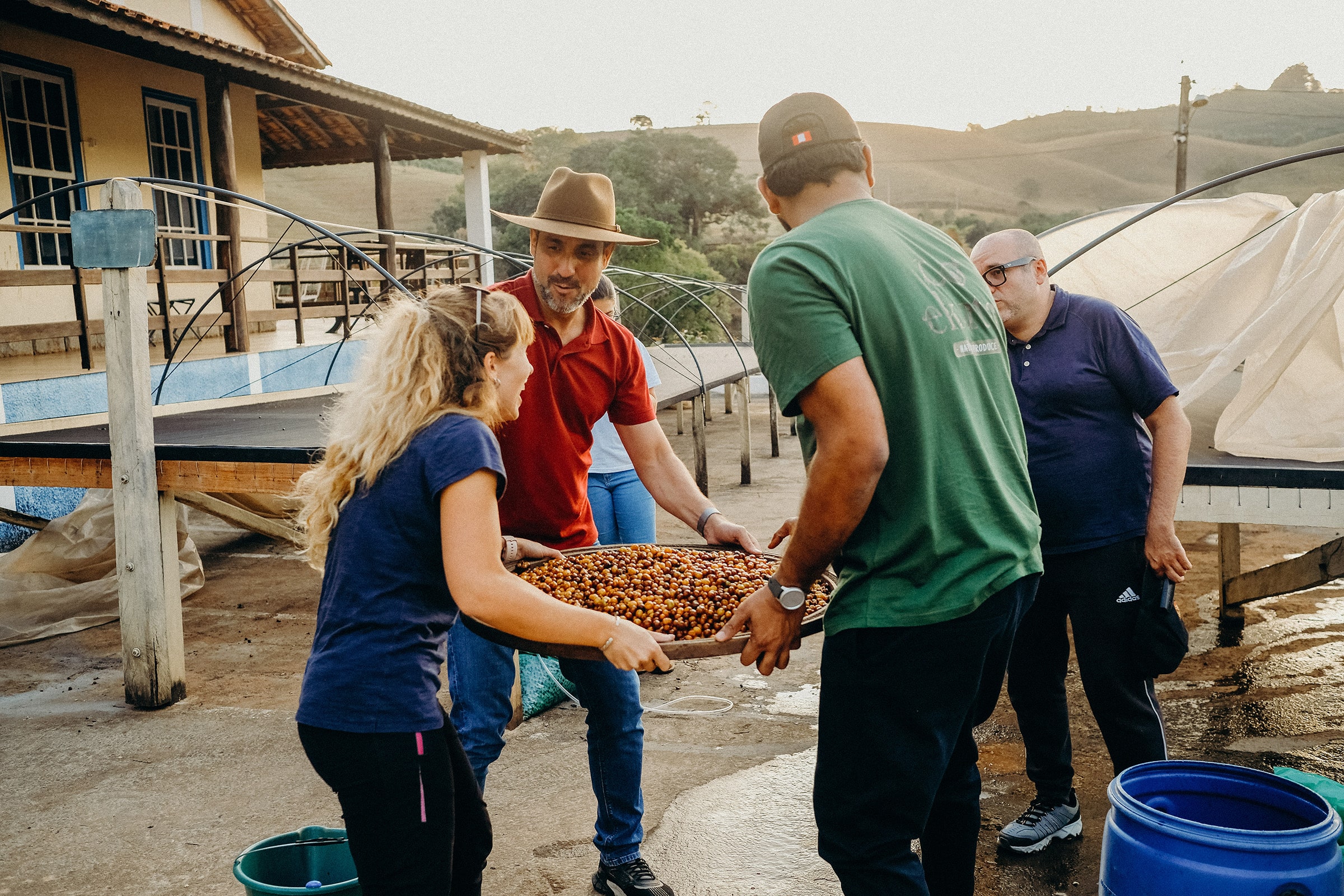
Description: Intro to Processing is a 100-level, 5-hour online or one day in-person class geared towards coffee people who want to better understand the basic processing methods. The class covers a brief history of coffee processing, coffee harvesting methods, pre-cleaning measures, and the standard post-harvest processing methods: natural, honey, mechanically demucilaged, fully washed, and wet hulled. Non-Certificate.
Who is it for? Coffee people who are interested in learning the basics of processing.
Register for courseDescription: The 100-level class explores canephora through historical, biological and organoleptic perspectives. The history of canephora and the canephora market are used to create context for the present state of canephora and its potential as a specialty coffee. Throughout the class, relevant comparisons to Arabica are made, including market statistics, farming and production practices, and cup quality. The goal is to introduce canephora to a wide breadth of coffee professionals so that learners will realize the potential of Fine canephora.
Who is it for: People who want to fill their knowledge gap for canephora.
Register for courseDescription: This 200-level class consists of flexible lessons designed to help processors develop practical skills and problem-solving strategies to improve coffee post-harvest processing. Conducted at a mill/washing station during harvest, the class is entirely field based and can be customized to address a diversity of participants, depending on their geography, current challenges, or knowledge gaps. Lesson content covers topics from fruit reception to the dry mill, with a focus on fundamental practices that can help preserve and improve coffee quality. The class can be delivered over two or three days, and is practical, engaging, and directly relevant to the needs of producers.
Who is it for: Coffee producers, smallholders, and micro-processors with limited time who are looking for straightforward strategies to improve coffee quality.
Register for courseDescription: Over two units, students will understand the fundamentals and science of fermentation, the role of key microbes, fermentation in traditional processing methods, inoculations and other ways to control fermentations, and how microorganisms may be used as tools to craft flavors. Non-certificate, 200-level. Can be delivered in-person or online. Developed in partnership with Lallemand.
Who is it for? Coffee people who are interested in a scientific approach to fermentation and how it applies to coffee.
Prerequisites: Knowledge of coffee fruit anatomy and traditional coffee processing methods.
Register for courseDescription: This 200-level class focuses on how to inoculate with yeast and includes posters for the student to take home. This class may be held at a wet mill/washing station during harvest and focuses on the best practices of using commercial yeast, monitoring, and analyzing an inoculated coffee fermentation.
Who is it for? People in producing regions who are interested in fermentation and want to learn inoculation techniques specifically.
Register for courseDescription: Processing Generalist is a short, 200-level processing course that can be given in consuming countries or all over the world. The training part of the course involves lectures, group activities, and cuppings. To be certified, attendees must pass a multiple-choice exam at the end of the course. This course can be offered in-person or delivered as an online/hybrid course.
Who is it for? Any coffee professional (namely roasters, retailers, baristas) who are willing to learn about the main processing methods and how they impact coffee flavor and chemistry.
Register for courseDescription: Processing Professional is a 300-level six-day field-based course where learners deepen their theoretical knowledge of the main processing methods, learn best practices, and gain hands-on experience with a quality control system for post-harvest processing. With this content, students will begin to develop the skillsets necessary to achieve different flavor profiles through processing. The course takes place in a producing country during the harvest season, and involves lectures, team activities, applied lessons, and cuppings. It is a hands-on and collaborative learning experience fit for the practical needs of the producing side of industry. To be certified, attendees must pass both theoretical and practical tests.
Who is it for? Individuals working regularly with post-harvest processing.
Prerequisites: Processing Generalist is prerequisite for all students who do not work on coffee processing at a farm annually.
Register for courseDescription: This 400-level course takes about a year to complete and involves three parts. The first is the Remote Semester, where students learn the necessary background and read the most recent scientific literature on relevant processing topics. Next, students attend an in-person Field Intensive, where they learn experimental methods, innovative processing techniques, discuss selected processing topics in depth, and learn from guest experts in the field. Finally, students complete a Capstone Project, which changes annually and focuses on contributing the industry knowledge of processing.
Who is it for? Experienced and active coffee processing professionals who wish to add academic and practical rigor to their skill set while leading the industry forward.
Prerequisites: Processing Expert is an invitation-only course, open only to Processing Professional certificate holders. To express interest in joining the next Processing Expert cohort, please email Yimara Martínez at yagudelo@coffeeinstitute.org.